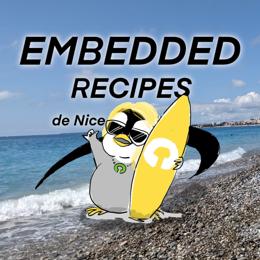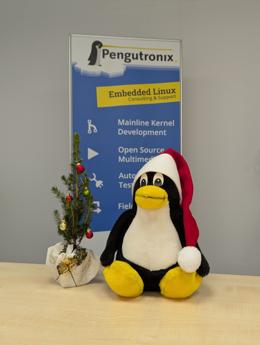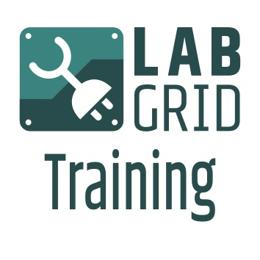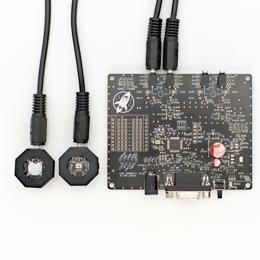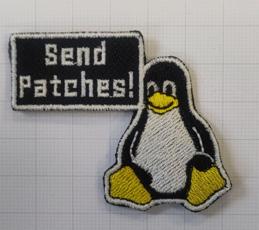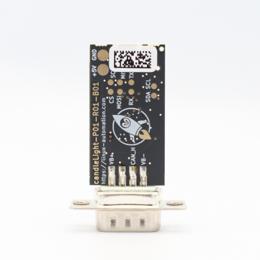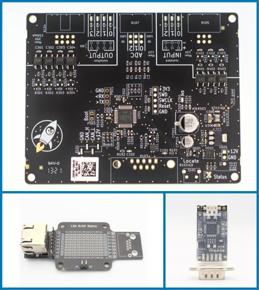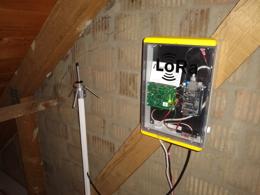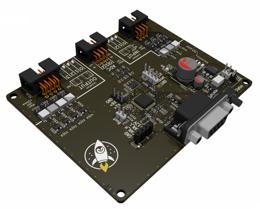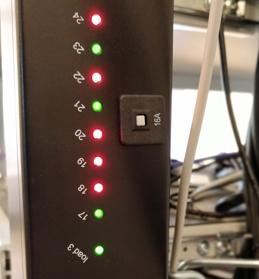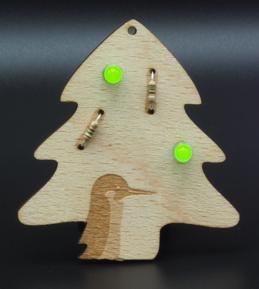Articles by Leonard Göhrs
You can buy RAUC and labgrid sponsor packages now
RAUC and labgrid are open source software projects started at Pengutronix, that are quite successful in their respective niche. Starting today you can buy sponsorship packages for both projects in the Linux Automation GmbH web shop, to support their maintenance and development.[Podcast] Kernel Panic - Board on Fire ~~> #012: EROFS Cache Crash - Das nicht ausführbare Dateisystem
In dieser Folge stellt Stefan einen Bug im EROFS Dateisystem vor, der dafür sorgt, dass sich Dateien zwar richtig lesen lassen, aber jeder Versuch sie als Programm auszuführen katastrophal scheitert.
Talks, Workshops, Time at the Beach - Embedded Recipes 2025
I was part of a small delegation of Pengutronixians at the Embedded Recipes conference this year in Nice, France. We had a great time there, so let's take a look back at the great talks we have seen, the labgrid workshop we held and our time in Nice in general.
[Podcast] Kernel Panic - Board on Fire ~~> #011: MAC, Phy & mehr - Ethernet bauen mit zwei Stück Draht
In dieser Folge unterhalten sich Oleksij und Leonard über Ethernet und seine verschiedenen (drahtgebundenen) Übertragungswege. Es geht viel über neue Single-Pair-Ethernet Standards (10Base-T1L, 10Base-T1S, 100Base-T1) und darüber was einem der Phy (der Baustein, der die digitalen Signale schlussendlich analog auf die Übertragungsleitung umsetzt) über den Zustand der Leitung mitteilen kann.
[Podcast] Kernel Panic - Board on Fire ~~> #010: A Grid of Labs - Das Labgrid Projekt. Was, Warum, Wie?
In dieser Folge setzen wir uns hin und reden mal ausgiebig über das Labgrid
Projekt.
Wir, das sind in diesem Fall Rouven, der damals den Grundstein für das Labgrid
Projekt gelegt hat, wie wir es heute kennen, und Leonard, der schon mal
labgrid-client power on aufgerufen hat.
Es geht darum was Labgrid eigentlich ist (ein Automatisierungs-Dingsie für
die Embedded Softwareentwicklung, aber kein Testing-Framework an sich),
aus welchen Komponenten eine Labgrid-Installation besteht, über die
Geschichte dahinter und noch ein bisschen mehr.
[Podcast] Kernel Panic - Board on Fire ~~> #009: Ho Ho Ho VirtIO - QEMU, KVM, Barebox und wie sie zusammengefunden haben
Wir haben lange gewartet, um endlich wieder eine Weihnachtssonderfolge herausbringen zu können. Für diese Folge hat uns Ahmad mal wieder ein spannendes Thema mitgebracht, oder viel mehr einen Themenkomplex. Er erzählt uns nämlich, wie sich, als Barebox in die oe-core Layer des Yocto Projekts gebracht wurde, die Gelegenheit ergeben, hat spannende Dinge über Emulation und Virtualisierung mit QEMU und KVM und Paravirtualisierung mit VirtIO zu lernen.
Happy Holidays!
It's that time of year again. That time of the year in which the Pengutronix marketing team gets out the arts and crafts supplies and goes into recluse to come up with this year's hand crafted Christmas cards!
labgrid is going on a live tour!
labgrid makes it possible to remote-control embedded linux devices and to implement integration tests of a complete embedded Linux system on real hardware. The Pengutronix developers and other companies have been using labgrid as a centerpiece of their embedded software development infrastructure to great success for quite some time now.
Linux Automation's Optick: A Glass-to-Glass Latency Measurement Tool
New Linux Automation GmbH products are often inspired by needs we observe in our day-to-day development work at Pengutronix. Today's new product, the Optick, was inspired by our graphics team, that works with different kinds of video pipelines and optimizes them based on customer demands. One such demand is minimizing the latency of camera to display video pipelines.
Pengutronix 2023: A Year in Review - Part III
In the third and final part of our retrospective series, we look at our sister company Linux Automation GmbH, which, in addition to moving into new premises, has used the year to bring the long-awaited LXA TAC (Test Automation Controller) closer to market maturity despite all adversities. The colleagues provide a brief review and insight into this, as well as into current further developments of existing products.
Pengutronix 2023: A Year in Review - Part II
In the second part of our review, we will focus, among other things, on the work of our graphics and multimedia team, which again covers the entire Linux stack, from the kernel to mesa to Pipwire, Weston and Webkit has accommodated a whole range of bug fixes, extensions and adjustments to cover the requirements of a wide range of customer projects.
Pengutronix 2023: A Year in Review - Part I
Another exciting yet challenging year has passed. We are a year closer to the Y2038 problem, OpenSSL 1.1.1 is finally history, kernel v4.14 from 2017 will finally be discontinued in four weeks, upcoming LTS kernels will only be supported for two years. The relevance of Linux, not just in embedded systems, is soaring. Simultaneously, the European (Open Source) software world faces necessary but challenging transformations, heralded by the upcoming Cyber Resilience Act.
[Podcast] Kernel Panic - Board on Fire ~~> #008: Aus dem Takt - Das Doppelpack Clock-Glitches
In dieser Folge reden Ahmad und Leonard über Takte / Clocks in Prozessoren. Darüber warum es so viele gibt, wie sie erzeugt und im Chip verteilt werden und darüber, was dabei eigentlich so schief gehen kann.
[Podcast] Kernel Panic - Board on Fire ~~> #007: GPU und nu? Der Weg zum offenen Grafiktreiber
In dieser Folge erzählt Lucas Stach uns wie er in die Entwicklung der offenen Grafiktreiber Nouveau und Etnaviv hineingeraten ist und was so ein Grafiktreiber eigentlich tut. Wir reden darüber warum Grafikkarten überhaupt Software ausführen und wie diese Software von der Anwendung bis in die Grafikkarte kommt.
[Podcast] Kernel Panic - Board on Fire ~~> #006: Der Browser im Fahrkartenautomaten - Webtechnologie trifft Embedded-GUIs
In dieser Folge erzählt Bastian Krause uns warum man öfter als man vielleicht denkt Webbrowser auf Embeddedgeräten vorfindet und was die verwendeten Browser von normalen Desktopbrowsern unterscheidet. Außerdem reden wir über Browserengines im Allgemeinen und auch ein bisschen über automatisiertes Testing von Webapplikationen.
[Podcast] Kernel Panic - Board on Fire ~~> #005: Time Sensitive Networking - Was wann wo wieso?
In dieser Folge erzählt Johannes Zink uns was was Time Sensitive Networking (TSN) und das Precision Time Protocol (PTP) sind und warum sie zum Beispiel für Industrieanlagen und Bühnentechnik so wichtig sind.
[Podcast] Kernel Panic - Board on Fire ~~> #004: OP-TEE und TrustZone - Geheimnisträger in der CPU
In dieser Folge erzählt Rouven Czerwinski uns was OP-TEE ist, was es mit ARM TrustZone zu tun hat und wie beides zusammen arbeitet um Geheimnisse in einem Prozessor abzulegen.
[Podcast] Kernel Panic - Board on Fire ~~> #003: Ein Rennen um Nanosekunden - Nebenläufigkeit mit Hardwareeinheiten
In dieser Folge erzählt Michael Grzeschik die Geschichte eines USB-Controllers, der dann und wann einfach aufhört zu funktionieren und davon wie er dem Fehler mit Tracing, einem Disassembler und viel Codelektüre auf die Schliche gekommen ist. Wir stellen einmal mehr fest, dass Probleme mit Nebenläufigkeit schwierig zu debuggen sind und nicht nur Software-Software Interaktion betreffen, sondern manchmal auch Software-Hardware.
2022 at Pengutronix
At Pengutronix and in the embedded Linux world in general, exciting things happen all year round, but a carry in the date field is a great opportunity to sit back and talk about it. In the broad categories of kernel, open source software, hardware and public relations we want to tell you what happened at Pengutronix in 2022.
[Podcast] Kernel Panic - Board on Fire ~~> #002: Wachhunde und (nicht so) ideale Bauelemente
In der zweiten Folge des Kernel Panic Podcasts geht es um ein Problem mit dem ich mich ausnahmsweise mal selbst beschäftigt habe. Damit ich mich dazu nicht selbst ausfragen muss springt netterweise Chris als Gastinterviewer ein. Problem dieses mal ist ein Gerät, das dann und wann einfach neu startet, und wieder einmal könnte die Ursache sowohl in der Software als auch in der Hardware zu finden sein. Es folgt eine Suche durch die verschiedenen möglichen Ursachen für Neustarts von Geräten, die uns an Watchdogs, Übertemperatur, den Eigenheiten von PoE, WAD pins und Dioden vorbei zur Lösung führt. Und wieder einmal steht die Größe der Änderung in keiner Relation zur vorherigen Suche.
[Podcast] Kernel Panic - Board on Fire ~~> #001: Speculative Execution und ein Execute Never Bit
In der ersten Folge des Kernel Panic Podcasts geht es um ein Problem mit dem sich mein Kollege Ahmad Fatoum beschäftigt hat. Wie so oft beginnt die Geschichte mit einer Aufgabe, die eigentlich™ in fünf Minuten erledigt sein sollte, driftet aber rasant ab in eine Fehlersuche in den Untiefen der Systemprogrammierung. Es geht um Caches, Adressbereiche, Spekulative Ausführung von Code, um Funktionierbits und auch um Nicht-Funktionier-Bits.
First Steps using the candleLight
So you went and got yourself one of our fancy rocket-penguin branded CandleLight dongles or, being the die hard hacker you are, went and soldered one up in your toaster oven labeled "not food safe". What's next then? How do you use this thing? Let's answer these question by grabbing a Raspberry Pi and exploring some of the possibilities.
Update of our Remotelab equipment
If it looks like an advertising blogpost, reads like an advertising blogpost ... it probably is an advertising blogpost! Nobody likes to read advertisements and we don't like to write them at all, but like all proud parents, we would like to show you the new products that our corporate subsidiary, Linux Automation GmbH, has freshly added to their store. With these new products we, and maybe soon you, will complete (y)our Remotelab infrastructure.
Smart City - vom Rapid Prototyping bis zur Tragfähigen Infrastruktur
Wir wollen zum Bundesweiten Digitaltag am 18.6.2021 das Thema "Smarte Städte" ein bisschen von der technischen Seite beleuchten, aber keine Angst: es bleibt für alle verständlich.
The LXA IOBus line of lab automation devices
I would like to present to you the LXA IOBus, a CAN-based ecosystem consisting of a protocol, a gateway server and new class of Linux Automation GmbH devices, including the Ethernet-Mux and the 4DO-3DI-3AI input/output board.
Showcase: Remote Working
Project work with our customers includes the handling of hardware prototypes. Since work is generally done in parallel, on many project for many customers, there is a constant flood of hardware prototypes accumulating on the desks of our developers. These accumulations of loose boards can become a problem. This is especially the case when a number of people work on a prototype. Another common annoyance occurs when a project has not been worked on for a period of time, as this might involve moving the hardware from one desk (or storage location) to another and setting it up again. Right now, in a situation where working from home is more common and relevant than ever, this has become even more of an issue. The distances between desks and storage locations of our developers are now measured in kilometers, rather than meters.
Pengutronix Christmas Tree
With the outside world getting colder and the days becoming shorter, we at Pengutronix decided to bring a bit of light in these dark days of the year.




